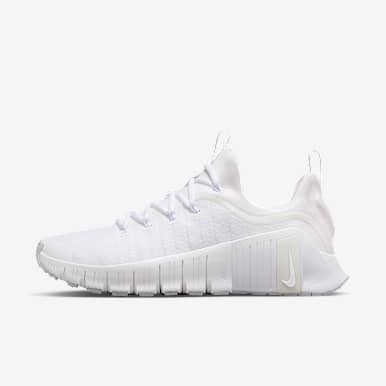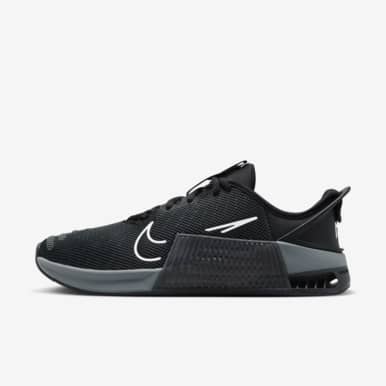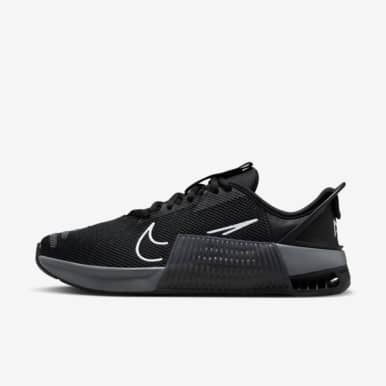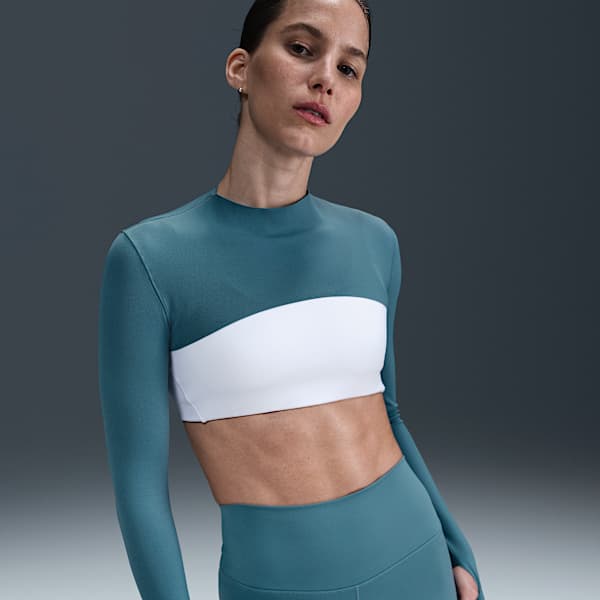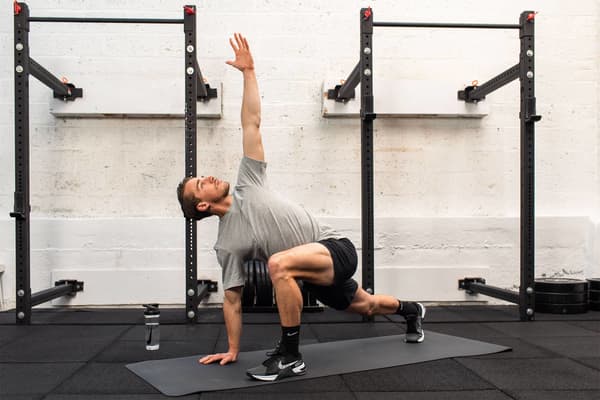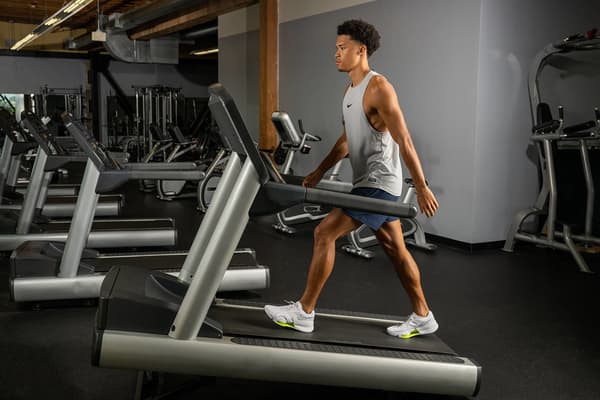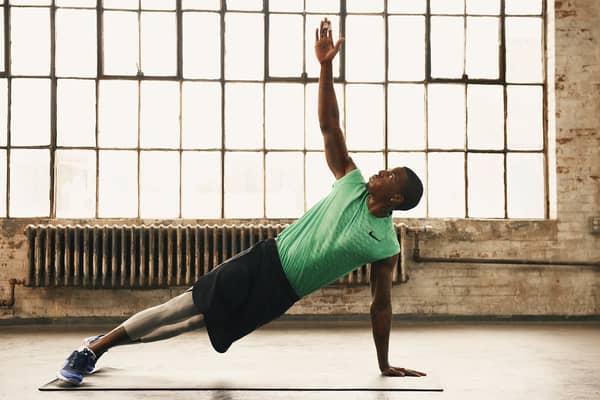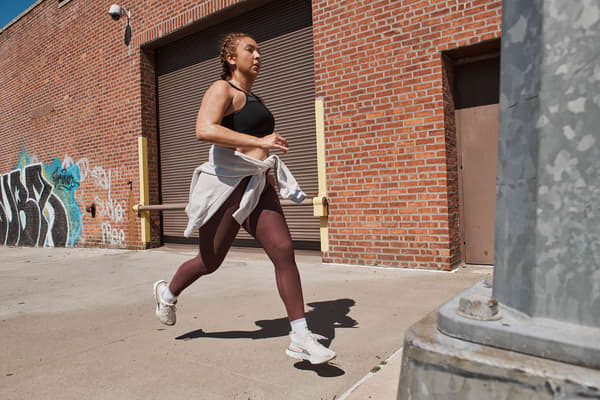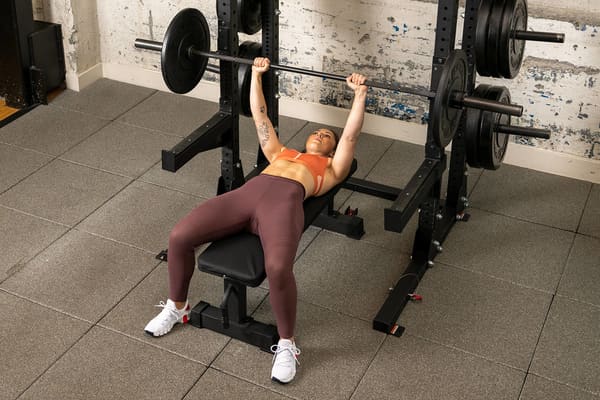5 Unexpected Benefits of Jumping Jacks, According To Personal Trainers
Sports & Activity
From boosting your aerobic base to strengthening your hip muscles, there are several benefits of jumping jacks — all from just one swift movement.
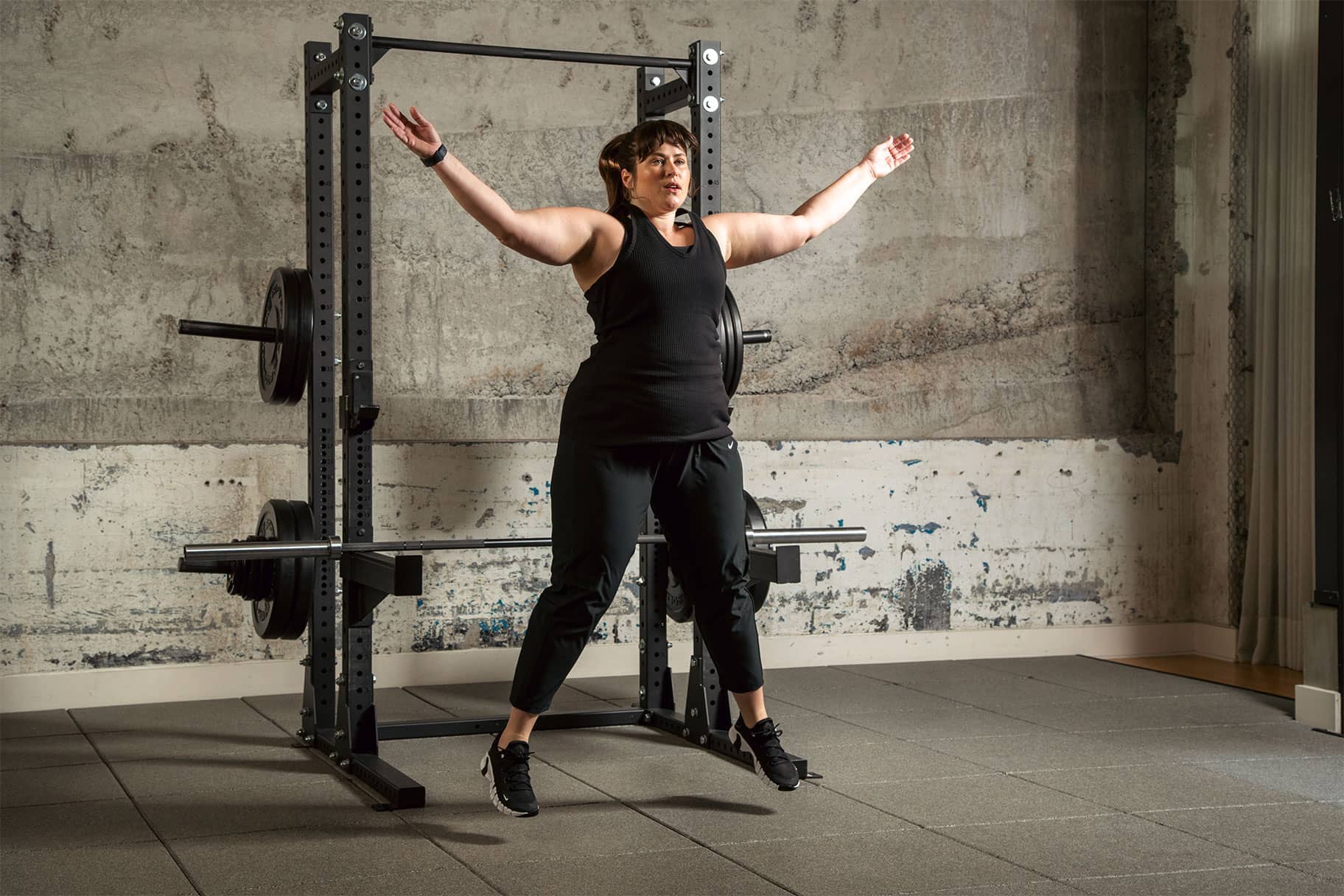
In case you need a refresher, jumping jacks entail hopping your feet out shoulder-width apart as you bring your arms above your head, then hopping your feet back together while lowering your arms to your sides. Don’t let the simplicity mislead you, there are a handful of potential benefits of doing jumping jacks.
Below, two personal trainers share the benefits of jumping jacks and tips to incorporate them into your workouts.
(Related: What Is a HIIT Workout, Anyway?)
1.They Engage the Entire Body
One of the key benefits of jumping jacks is that they’re a full-body exercise, meaning the move works the lower body, upper body, and core muscles, said Clara Baini, D.P.T. and Pilates instructor.
And, since jumping jacks elevate your heart rate, they’re considered to be a form of cardiovascular exercise, she said. This move works double-time and can improve strength, too.
“Jumping jacks can specifically improve aerobic capacity, decrease resting heart rate and blood pressure, decrease risk of cardiovascular disease, improve metabolism, and help to maintain a healthy weight,” Baini said.
In other words, you reap a reward for your efforts, which is excellent for people pressed for time or are looking to integrate more efficient exercises into their fitness routine.
(Related: How Long Does Your Workout Really Need to Be? Experts Explain)
2.They Help Develop Power
Add power, also referred to as elastic strength, to the growing list of benefits of doing jumping jacks. “Elastic strength is the ability for muscles and tendons to absorb and release energy,” said Alexa Javens NASM C.P.T. “The more elastic strength you have, the more powerful you’ll be.”
“And more power translates into successfully performing various exercises and activities like box jumps, jump lunges or even running,” Javens said.
Here’s how jumping jacks help build power: “Like most plyometric exercises, jumping jacks require an eccentric and concentric contraction of a muscle or muscle group at a fast rate,” Javens said.
“Eccentric would be the slow lengthening of a muscle contraction — perfect example is the ‘lowering’ movement in a squat. Concentric is the opposite of that. Think of this as the ‘shortening’ of the muscle [such as] when you stand up from the bottom of a squat,” she said.
3.They’re a Scalable Exercise
Another perk of jumping jacks: You can turn the intensity up or down, depending on your needs.
“By simply changing the tempo of the exercise — moving quickly or slowly through each rep — or jumping higher [or] incorporating more power, the intensity of the exercise will change,” Javens said.
To make jumping jacks more challenging, she suggested grabbing light dumbbells in each hand, which will work the shoulder muscles. Or, you can use mini resistance bands around each ankles to target the outer glutes.
(Related: The Best Resistance Band Exercises for Beginners)
On the other hand, if you need to scale the exercise back, Baini advised modifying jumping jacks by stepping your feet in and out rather than jumping, but still moving the arms the same way.
“This is helpful if you have knee, ankle, hip, or lower back pain or injuries, or if you’re new to exercise and starting slowly,” she said. Alternatively, she added, you can isolate one area of the body to decrease the intensity by either moving only the arms or only the legs.
4.They Strengthen Hip Muscles
Perhaps one of the top benefits of doing jumping jacks? Performing this move regularly can help strengthen the hip muscles by working the hips in two directions: Abduction, when the legs move away from the body, and adduction, when the legs return to the starting position, squared under the hips.
“These abductor and adductor muscles make up the outer hips and inner thighs and are integral to pelvic stability and lower back support,” Baini said. “They are also some of the primary muscles we use for most functional movements such as walking, running, getting out of a chair, and picking things up off the floor.”
In short: Hip muscles play important roles throughout daily life, and jumping jacks can be a fun way to strengthen them. And bonus points, Javens added that jumping jacks can help with ankle strength and shoulder mobility.
5.They Can Improve Bone Density
Maintaining healthy bone density is essential for managing and preventing diseases such as osteoporosis (a disease that weakens bone), Baini said, especially as people age and bone density naturally decreases. Thankfully, jumping jacks can help with that.
Here’s how: “Jumping jacks are considered a weight-bearing exercise as the feet make contact with the ground,” Baini said. “Weight-bearing exercises produce force and stimulate part of the bone, which helps with new bone growth.”
How To Incorporate Jumping Jacks Into Your Fitness Routine
There are many benefits of doing jumping jacks. More good news: Jumping jacks are versatile, meaning there are various ways they can be incorporated into a fitness routine. Baini suggested adding them into a high-intensity interval training, or HIIT, program by mixing them with other high-intensity exercises such as burpees, squat jumps, and jump rope. She also suggested adding jumping jacks to a strength training program for a cardio boost.
However you add jumping jacks to your workouts, Javens said there are a few key things to keep in mind to ensure you’re doing them correctly.
“It’s important to land lightly, keeping most of your weight on the balls of your feet and only a soft bend through your elbows,” she said. This helps protect the joints and ensures you reap the full benefits through the upper body. Also, she advised engaging the muscles in your core as you move your arms overhead to help protect the lower back.
And, lastly, Baini stressed the importance of landing with soft knees rather than locked knees, which can negatively affect the knees over time.
Words by Jessica Estrada
